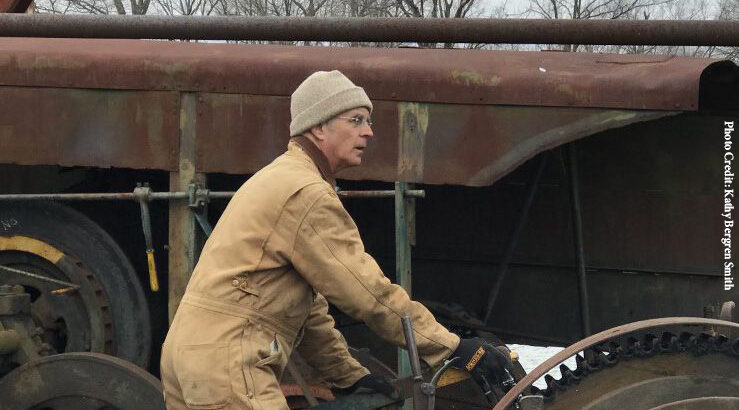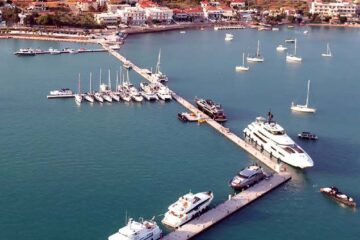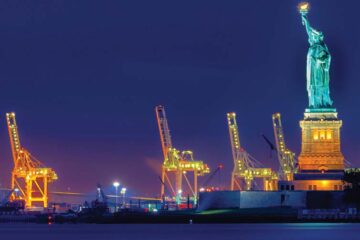There are many different ways to start out in a family business, one that your father and uncles were running long before you were born. Sales and marketing come to mind. Maybe if you went to college, business development or finance or systems analysis. Something in the executive suite.
Jeff Smith began his life’s work at Smith Brothers, Inc. in the dirt, mud and water. Working his way from the ground up. Literally.
“I started as a laborer,” he says, “and progressed into driving a tractor/trailer for years. I operated all the equipment, including cranes. I got a tug boat license. Eventually, I progressed into estimating and then running the jobs.”
Was there anything he didn’t do?
“Yeah, welding. I never wanted to weld. My uncles would have had me welding in addition to everything else I did.”
Jeff’s uncles and his father – the six Smith brothers – founded the company that bears their name 100 years ago in Galesville, Maryland, on the western shore of the Chesapeake Bay, east of Washington, D.C. and south of Baltimore. The company expanded from building piers during World War I to building homes and then becoming a major government contractor, building and repairing bridges throughout Maryland.
Jeff Smith says that the company’s success was due to more than their willingness to dive into hard work.
“It was mainly being honest with people,” he explains. “We never promised something we couldn’t follow through with. And that takes a lot of forms. We return phone calls, for example. People respect that.”
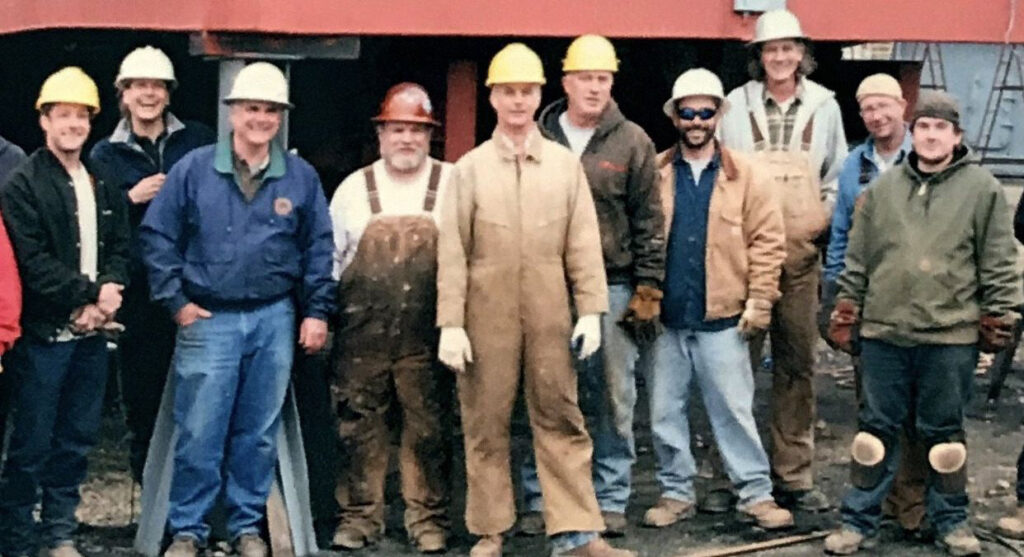
The Smith family’s honesty was perhaps most important with the company’s own employees.
“The brothers treated their employees just as anyone would want to be treated. They had an open-door policy and their employees could come in and talk to them. The employees had good benefits. All of it made for people who stayed with us for their whole careers. One long-time employee, Edgar Bryan, worked here about 55 years and just retired. We got to know the employees well, not just on the job, but we knew their families and children.”
Jeff’s father, Kenneth, bought out his older brothers, and Jeff worked side by side with Kenneth for years before taking over the company in the late 1980s. “My father was very pleasant to work with,” Jeff says. “He was easy to talk to, and he knew I knew what I was doing. He slowly released the reins and I ended up running the business.”
However, business conditions changed dramatically in the early 1990s, Jeff says. A number of large, out of state companies moved to Maryland to escape the economic downturn in the heavy construction sector. The new companies could afford to submit bids at a loss to gain entrance to the market.
“We were not going to survive the way we were going,” Jeff Smith says. “It was a dark time. I was focused on making payroll, not making any money myself, and wondering what we could do.”
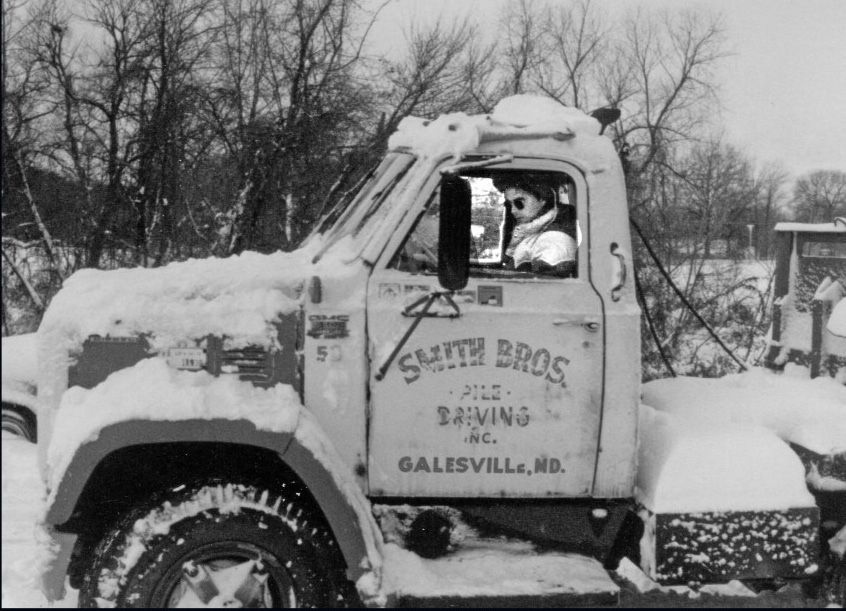
What he did was refocus the company: Instead of continuing as a contractor, he focused on their expertise with barges and tugboat and begin to rent the equipment, often to his former competitors.
“It was tough,” he admits. “We were getting $2,000 checks instead of the much larger ones we were used to. The cash flow was not the same as contracting with governments, either. Sometimes customers would say that the weather or tides or something else had prevented them from using our equipment, and they wouldn’t pay the rental fee. I said, ‘Look, I know all about your problems. I’ve been there. I hope you make a million dollars for the job, and all I want is the small amount for the rental.’ I’d usually get it.”
The company’s expertise in all kinds of construction extended to the equipment itself.
“I went to New Orleans at that time to look at buying a used tugboat,” Jim recalls. “They wanted $600,000 for a boat that was 50 years old. I thought, we could do better than that building our own.” Jeff tapped his general manager, Preston Hartge, to head up the building program.
Smith Brothers began to build its own tugs and barges in its yard on the Galesville waterfront. Jeff didn’t have to think too hard about names for his boats: He named them after his three daughters – the Amity, Charlotte and Ellie – and after his father, the Captain Kenneth.
The education of his daughters was the family’s top priority while they were growing up. They’re adults now, and two of them live far away, one in New Zealand and one in Sweden (the third lives in Baltimore). “None of the three was interested in the business, so I began to think about an exit strategy.”
Jeff had many factors to weigh in such a momentous decision. One hundred years of family history was part of it.
“My father was very committed to Smith Brothers,” Jeff says. “It was his life, really, apart from his family. He loved every nut and bolt in the yard. When we made the transition to my leadership of the company, I wanted to be sure that he felt he was leaving it safe with me and that he always would have a place to come and hang out, even at age 100. Which he did. But after he died a few years ago, I decided I didn’t want to be coming down here on my walker at 100. I have daughters to visit and I have other things I want to do.”
Another company with operations in Maryland, McLean Contracting, had approached Jeff several times about buying the company, but Jeff had declined. A year or so ago, he reconsidered.
One reason was that McLean, whose origin dates to 1903, has a long history with Smith Brothers: Their first joint venture with Smith Brothers was a job in 1934 on the Norfolk waterfront.
“My dad knew McLean Contracting well,” Jeff says. “He worked along side of them for many years and respected their corporate culture. I know he’d be thrilled to be associated with the company.”
It also was good business for Smith Brothers’ employees – and for Jeff himself.
“Everyone here who wanted to stay kept their jobs, and they now have the opportunities afforded by a larger company. I’m still the president, running it the way we always have and working with Keith Aschenbach from McLean, who will take over in 2021.”
The transaction closed in August 2019. When his contract expires in 2021, Jeff Smith will be 68. He’s not sure what he’ll do then. He’s not worried about it, either.
“I’m sure we’ll go to New Zealand more,” he says. “I tell my wife I’ll go crabbing and drink beer, but that’s mainly to tease her. You know, it’s bittersweet to sell the company. I know it intimately. But my father knew nothing else other than work, which is why he came here at 101. That won’t be me.”
Whatever Jeff Smith decides to do next, and wherever he goes, he’s likely to carry the values of the past 100 years of his former company with him.
By Warren Miller
Republished from Marine Construction Magazine Issue VI 2019






